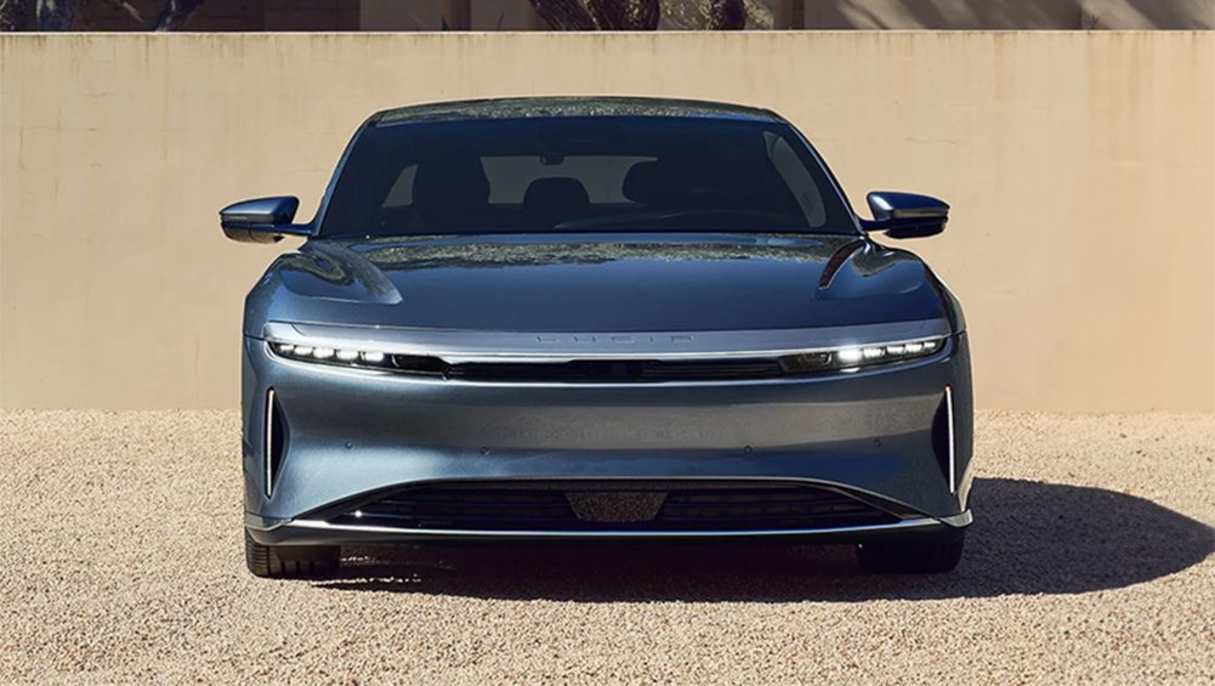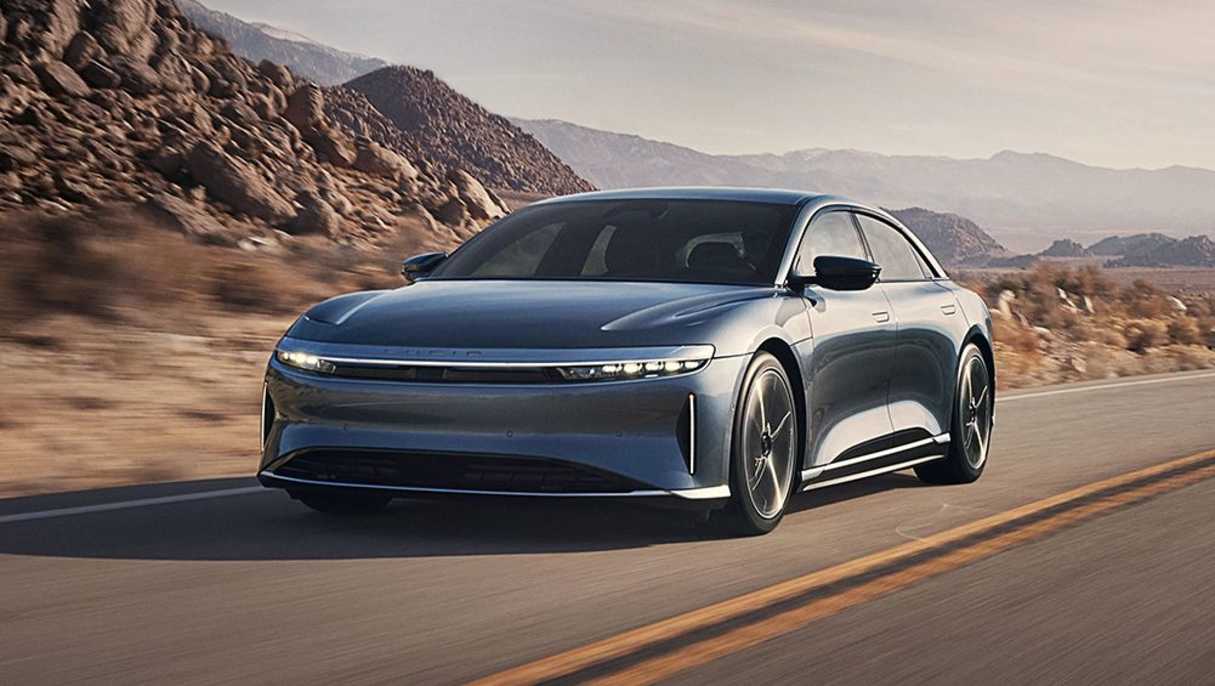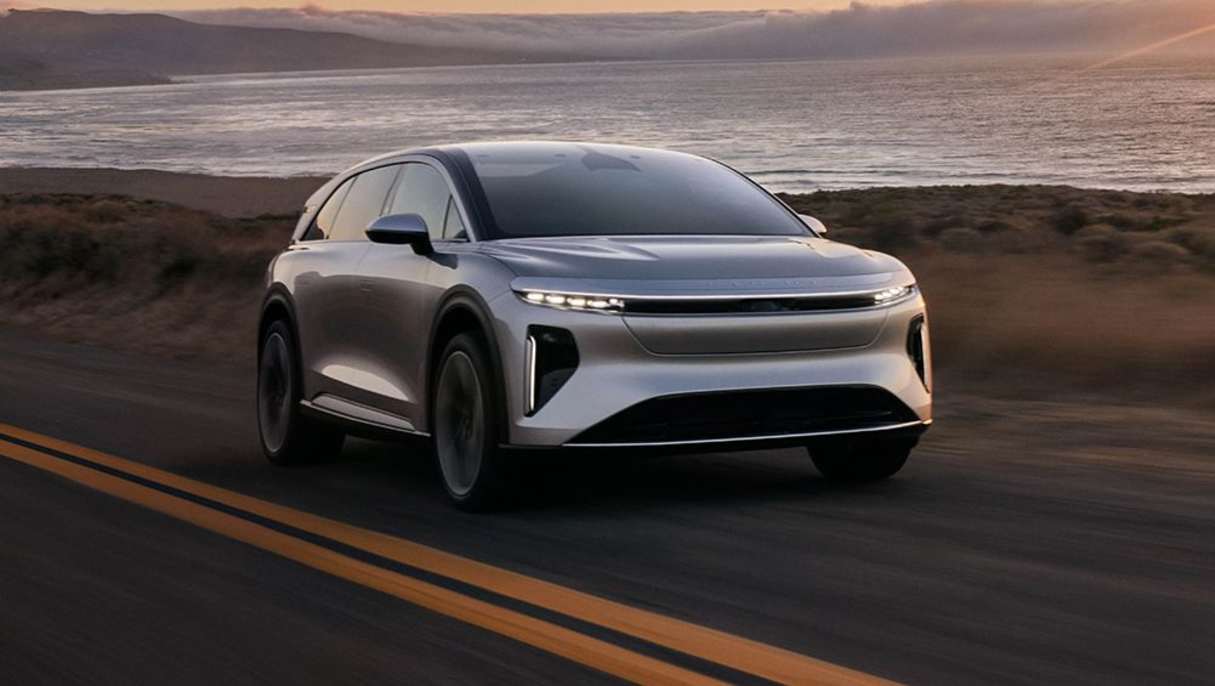Peter Rawlinson, CEO of American electric car company Lucid, shared a graph showing how far ahead the brand’s technology is compared to key rivals.
This graph outlines the difference between the Lucid Air Pure and rivals, including the Tesla Model S, Mercedes-Benz EQS and Porsche Taycan.
In typically strict EPA ratings, the Air Pure records 12.5kWh/100km while the Model S achieves 17.2kWh/100km. Both the Porsche Taycan and Mercedes-Benz EQS trail the Lucid and Tesla significantly.
Extrapolating the trends in battery improvement, Rawlinson estimates it will take Tesla eight years from today to catch up to the Lucid Air — and by then, Lucid will only be further ahead.
Of course, the graph isn't perfect as it assumes linear development. It's hard to imagine that Tesla won’t make a sudden leap with battery technology in the next eight years — say solid state batteries or new high-voltage architecture for a fresh Model S flagship.
Tesla’s Model S is an old car now, having been released way back in 2012. Compared to the Lucid Air’s 900-volt electrical architecture, the 400-volt Model S is hamstrung from the start against the newer, more advanced Lucid.

Tesla has been spending time lately on expanding volume and global sales with the Model 3 and Model Y and has discontinued the Model S in many markets, including Australia. Currently, boss Elon Musk sees autonomy as Tesla's greatest asset, not battery technology.
The Lucid Air launched officially in 2021 and has been refined since then. The Air Pure in question is the entry-level single-motor model but still has impressive credentials with 320kW and a claimed 4.5-second sprint from 0-60mph (0-98km/h).
With a 92kWh usable battery, the EPA efficiency (typically more conservative than even WLTP) sees it capable of travelling 676km from a charge.

A Sapphire range-topper produces 920kW with all-wheel drive rocketing it from rest to 60mph in under two seconds, according to the carmaker.
Rawlinson is an ex-Tesla engineer and key driver of Lucid, which remains staffed by many engineers and executives who left Musk's company to start a rival brand.
The company is majority owned by Saudi Arabia’s Public Investment Fund (PIF) which announced a US$1.5 billion funding boost last week. This is to aid Lucid in producing its new Gravity SUV that will be built in Saudi Arabia.

Lucid is still a minnow in global EV sales, with the aim of selling 9000 Air sedans in the United States by the end of this year. The Gravity SUV is expected to boost sales and profits, with the Saudi factory targeting production of 150,000 units each year.
The electric car specialist has announced no further plans to launch in Australia. It’s understood Lucid is waiting for smaller models more relevant to global markets, with a local presence expected towards the end of the decade.





.jpg)

.jpg)


_0.jpg)
 (1).jpg)

.jpg)
.jpg)



_0.jpg)

.jpg)
.jpg)
_0.jpg)


.jpg)



.jpg)